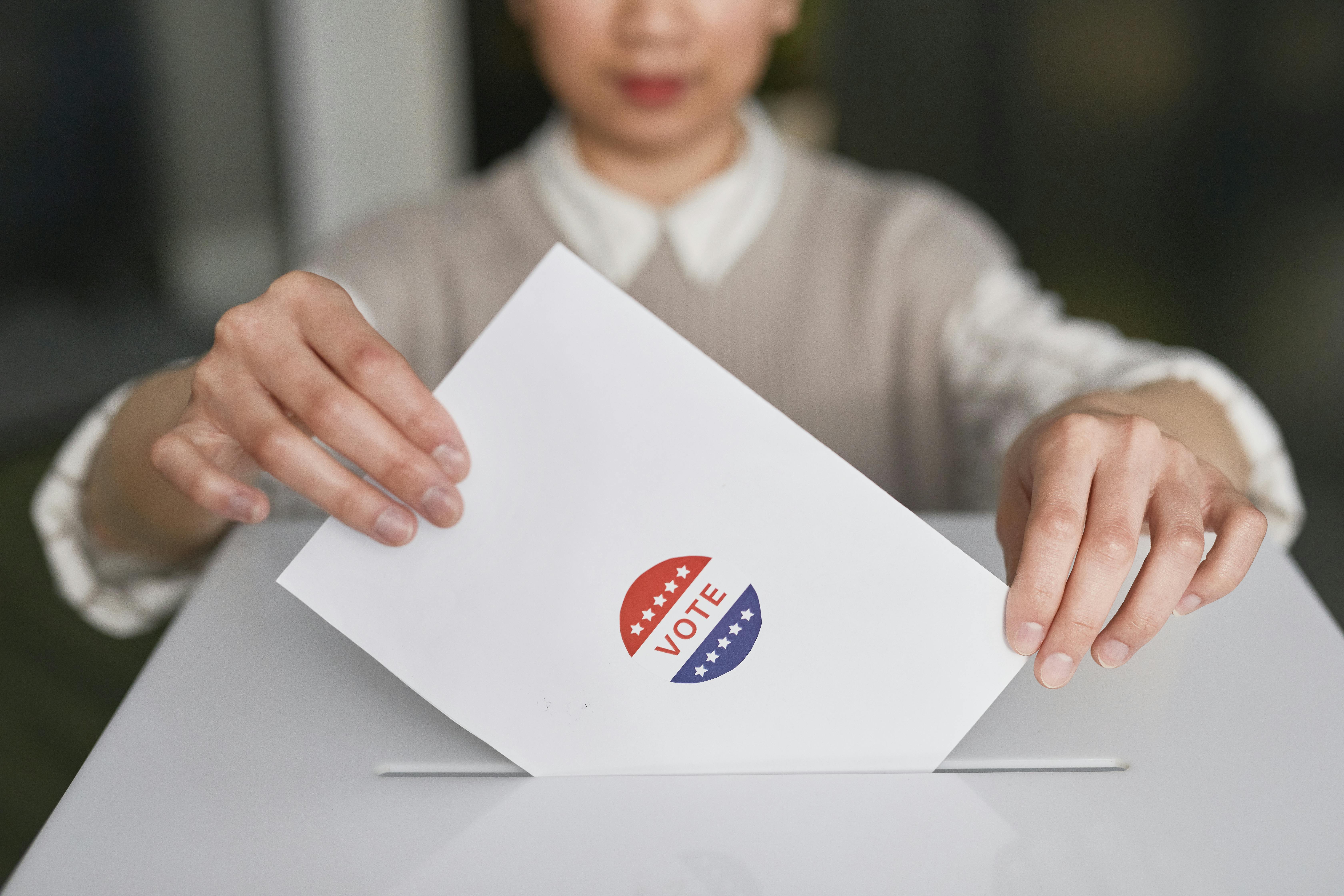Strategies for managing well-being during the presidential election cycle

By Leah Persky, Phd & CFLE • Parent Coach and Manager of Professional and Community Education
Over the past decade, politics have become not only more divisive, but also more personal. Today, most Americans feel very deeply about aligning with a political party; for many political ideology is a key part of their personal identity. Most people feel so deeply about political affiliation that it has become hard for many to understand and identify with members of another political party. This atmosphere has led to millions of Americans feeling alienation and even hatred for “the other side;” further, many people feel personally attacked when discussing politics with people who have opposing views.
Politics has not always been this way or been experienced with such negativity by citizens. Trust in the institutions of government and in other citizens is at historically low levels (Rainie and Perrin, 2019). Low levels of trust has negative impacts on the functioning and quality of a democracy. The set-up between opposing parties or sides is only supported by the ads we hear, the “othering” of people we don’t agree with, and for most, the limited interaction with people who identify with another party. Luckily, there are things we can each do to try to improve understanding, civility, and trust in institutions and one another.

The first presidential debate between Kamala Harris and Donald Trump will have recently aired when you read this, and no doubt members of different parties will heartily support their chosen candidate throughout. How can we listen to the content of the debate and other political discussions with an open mind and listening ear? I am not sure that I have an answer to this question, but here are a few ideas to assist in navigating this politically uncertain time, which is a crucial test for our democracy.
1. Stay engaged, but not over-engaged. There is a fine balance here. We all need to stay engaged and aware of news and events, but we don’t want to overdo it so that we become stressed, anxious, angry, and exhausted. Recent research demonstrates that those most engaged in politics (regardless of party) feel the most stress. The research from Pew Research Center shows that among highly politically engaged adults, “69% . . . say they always or often feel angry when thinking about politics.” (Pew Research Center, 2023) Being thoughtful about what amount of media consumption is right for you will set you up for success in navigating this.
Being mindful will allow you to stay informed as an active citizen and help to avoid political burnout. Also think about how you get your news; it may be that hearing rather than watching news is less stressful. Others avoid the news right before bed or first thing in the morning. Some people like to set a time limit on the amount of news they consume. Set some guidelines for yourself and see what works best. The important thing is not to turn away from current events or become apathetic. Democracy requires that we pay attention and participate.
2. Try Compassionate Curiosity as a communication strategy. Compassionate Curiosity simply means that we can train ourselves to listen to others in a way that allows us to have a genuine interest in understanding how they are feeling, and their past experiences, without judgement and regardless of their political party or anything else (Heriot-Maitland et. al, 2019; Pyles, 2020). Just as a small child digs in the dirt because they are interested in what they might find, we can listen with that curiosity, and importantly, without judgement. This will allow for more back and forth civil discussion without people feeling threatened or angry.
These unique types of conversations are not natural and take time and care; they also can powerfully cut through misunderstandings and assumptions. They can lead to some important discussions and finding common ground with people who are different from you. This doesn’t mean you leave a conversation with agreement – rather a deeper understanding and increased trust or improved relationships. Part of compassionate curiosity is approaching conversations with an open mind, a focus on listening and avoiding trying to convince anyone or change their mind about an issue or candidate.
We can also apply the strategy of Compassionate Curiosity to how we approach our assessment of political messaging or other information we come across on the media. We can use this strategy to be aware of and separate from our own biases and judgment. It’s not necessarily easy, but a very powerful approach to learning and exploring without judgment.
On this theme, if you are interested in exploring how different political parties explore the news of the day, check out All Sides News Source, a website that allows you to see what different news outlets say about the same news.
This political chart also allow you to see what biases your current news sources have. Notice if you only get your news from one source or one ideology. If so, work to diversify your news sources, if only to better understand how other perspectives view current events.
3. If you have kids, start conversations about politics with them. No doubt, most kids in elementary school and older are well-aware of the upcoming presidential election. Kids are exposed to many ideas at school from friends or classmates, some of which may be untrue or quite exaggerated and may have questions based on what they’ve heard. Kids also hear things on the news and see political signs and ads they may not understand. I know my elementary-aged kids have come home sharing some interesting and untrue news about the election and presidential candidates. I was glad they shared the information with me because that led to some important and entertaining conversations.
It is true that most children will have the same political beliefs as their parents, especially in active political families (Jennings et al, 2009), but it is a good idea to make space for open discussions about politics so kids can explore the issues and ideas for themselves. Asking open-ended questions and exploring different ideas can lead to new discoveries. Exploring the importance of participation in a democracy, including voting and what being a good citizen means to your family, is also a great discussion topic. There are some wonderful kids-focused news sources to start discussions such as Time for Kids and CNN 10.
I want my kids to think for themselves, question things, and be critical about the world around them. For this reason, I believe having these open conversations about politics is crucial for all of us and our future voters. It is hard to not start out explaining my own political views, but I remind myself that listening to them and asking questions is most important.
Reach out if you have any questions about politics and families or how politics is impacting your relationships. Or reach out if you have a topic you would like me to explore in next month’s article on strategies for navigating this presidential election season. You can reach me at lpersky@jfcsmpls.org
References
- https://www.pewresearch.org/politics/2023/09/19/americans-feelings-about-politics-polarization-and-the-tone-of-political-discourse
- Heriot-Maitland, C., McCarthy-Jones, S., Longden, E., & Gilbert, P. (2019). Compassion
focused approaches to working with distressing voices. Frontiers in psychology, 10, 152. - Jennings, M. K., Stoker, L., & Bowers, J. (2009). Politics across generations: Family transmission reexamined. The Journal of Politics, 71(3), 782-799.
- Pyles, L. (2020). Healing justice, transformative justice, and holistic self-care for social
workers. Social Work, 65(2), 178-187. Rainie, L and Perrin, A. (2019). ”Key findings about Americans’ declining trust in government and each other.” Pew Research Center. Americans’ declining trust in government, each other: 8 key findings | Pew Research Center
